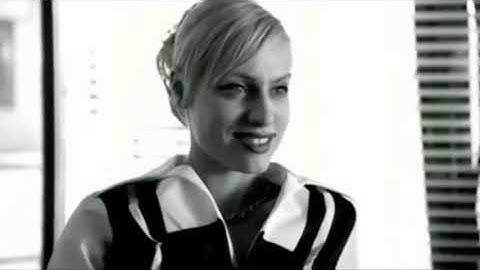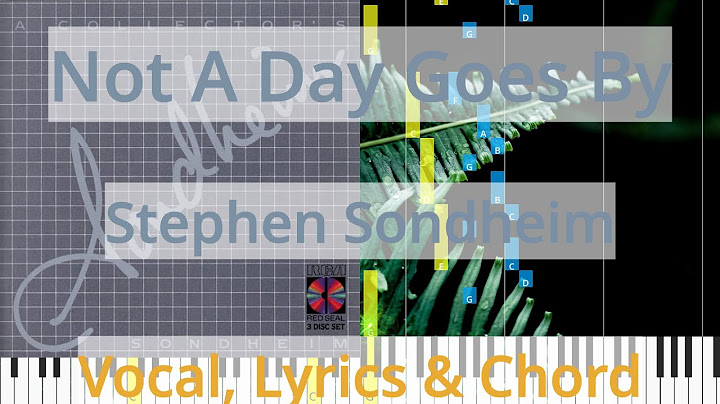Happy 35th Anniversary to Depeche Mode’s sixth studio album Music For The Masses, originally released September 28, 1987. Show There comes a time in every band’s career where the swelling fan appreciation is matched by critical acclaim. A tipping point that sees a band become a “credible” choice for the hipster crowd and general record buying public, garnering both critical and commercial success. For Depeche Mode, a band that was perhaps best known for their 1981 boppy-electro hit “Just Can’t Get Enough,” this tipping point occurred with the deliberately ironically titled Music For The Masses, released in September 1987 Die-hard Depeche Mode fans knew that the band had evolved in leaps and bounds since the bouncy new wave days of “Just Can’t Get Enough,” but for the most part the general record buying public had been unaware of this evolution. After the departure of “Enough” writer Vince Clarke (who went on to form Yazoo and then Erasure) following the arrival of their 1981 debut album Speak & Spell, the band released a succession of albums that saw them grow both musically and thematically as Martin Gore took over chief songwriting duties. Through the release of A Broken Frame, Construction Time Again, Some Great Reward and Black Celebration, the band carved out a niche for themselves in the emerging electronica genre and slowly pushed their appeal to a growing audience with each offering. So with the perfect storm looming on the horizon, the band released Music For The Masses, a rich, textured, multilayered mix of sex, drugs, isolation, obsession, gloom and contemplation. Relying less on samples and found sounds, the band pushed to create new musical vistas through the addition of guitars, tweaked and reconstructed synth sounds and hard-hitting beats. Tracks like album opener “Never Let Me Down Again” and the synth-pop charged “Strangelove” became unlikely breakouts crossing over from alt-radio into the fringe of the mainstream. “Never Let Me Down Again” with its metallic stomping beat and soaring chorus transcended the typical tropes of an ode to drugs and pushed it into a sonic place that was just as euphoric. The symphonic coda adds a sense of drama giving the track an expansive, cinematic feel. It’s a fitting entry point to an album where each track feels bigger and more ambitious than previous outings and musical moods meld and segue from one song to the next. Watch the Official Videos (Playlist): Even sparse arrangements like the rumor fueled “The Things You Said” and the erotically charged “I Want You Now” still have a sprawling feel to them. This is Depeche Mode in full Technicolor Cinescope, painting with a wide palette of emotional hues. In particular, Martin Gore’s lyrics, whilst still brimming with double meanings and cryptic wordplay, are presented with a lot of soul-bearing and heart aching honesty. He captures a sense of romantic dread, vulnerability and sexual joy in tracks like “Strangelove” as he meshes the concept of BDSM with the usual ups and downs of relationships. Expertly interpreted and conveyed by Dave Gahan, the lyrics take on an added sense of strength and power when delivered in Gahan’s hard, booming style. It’s this delivery of dichotomy that is ever-present in the album, from the juxtaposition held in the album cover artwork of a solitary megaphone in desolate places, through to the warmth and organic feeling that is wretched from the wired innards of electronic synths and soulless drum machines. Songs like “Sacred” play with the duality of religion and music as sources of salvation, whilst tracks like “Little 15” and “Behind The Wheel” contrast sexual desire with the preservation of innocence. The bold, foreboding lament of “To Have And To Hold” is a dark gospel plea for salvation against an ominous feeling of dread that surrounds you in a most seductive way. Perhaps the most commercial track on the album, “Nothing” is pure electro-pop set against a nihilistic lyrical context, yet it comes off as almost Zen-like in its delivery. Disappointment has never sounded so appealing. Closing out with “Pimpf,” an intense and epic instrumental piece that acted as the opener to the Music For The Masses tour, and the hidden track “Interlude 1,” Depeche Mode present an album of epic proportions that taps in to a sense of desperation, angst and desire for something more that resonated with a wider audience than perhaps even the band themselves ever expected. Enjoying this article? Click/tap on the album covers to explore more about Depeche Mode: The beauty of the album is that, 35 years after its release, it still feels modern and as a whole entity offers the listener a cauldron of emotions that strike at the core of all of our existence. There is a subtle power at work here. A rawness and honesty that draws you in. With Music For The Masses, Depeche Mode stepped up their level of artistry—thanks in no short measure to the increasing influence of Alan Wilder—and reached for something more. The success and acclaim that followed turned Depeche Mode from curious electro synth-driven pioneers into a bone fide, critically acclaimed “band” that offered depth. The rise that followed its release is beautifully captured in the acclaimed 101 documentary helmed by D.A. Pennebaker and the corresponding live album that saw this little bubbling band reach boiling point. Note: As an Amazon affiliate partner, Albumism may earn commissions from products purchased via links featured on our site. LISTEN: Editor's note: this anniversary tribute was originally published in 2017 and has since been edited for accuracy and timeliness. What are songs for the masses?Songs for the Masses, Vol.. Show Me the Way Psalm 143. 3:00.. Shout for Joy Isaiah 49. 2:44.. Children of Light Ephesians 5. 2:25.. He Will Provide I Timothy 6. 2:32.. Praise the Name of the Lord Psalm 148. 2:29.. Let Not Your Heart Be Troubled John 14. 2:21.. By Faith Hebrews 11. 2:49.. Whiter Than Snow Psalm 51. 3:11.. What is Depeche Mode's most famous song?'Enjoy The Silence'
'Enjoy the Silence' from the 1990 album Violator is probably Depeche Mode's most widely recognised song.
What does Depeche mean in Depeche Mode?I like the sound of that." However, the correct translation of the magazine's name (and hence the band's) is "Fashion News" or "Fashion Update" (dépêche, "dispatch" or "news report", from Old French despesche/despeche; and mode, "fashion").
What is Depeche Mode's best selling album?The best-selling album by DEPECHE MODE is VIOLATOR, which sold over 4,954,390 copies .
|

Related Posts
Advertising
LATEST NEWS
Advertising
Populer
Advertising
About

Copyright © 2024 en.ketajaman Inc.


















